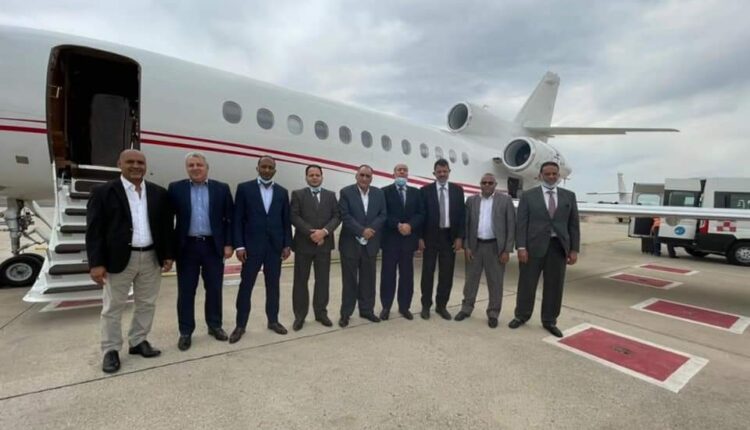Parliamentary Special Committee arrives in the Italian capital for crucial discussions
Members of Libyan Parliament's special committee arrive in Rome for crucial discussions concerning the upcoming elections in December

He explained that the Committee would meet in the Italian capital of Rome from Monday to Thursday, under the auspices of the United Nations Mission and in the presence of the High National Electoral Commission, to discuss the laws governing the upcoming presidential and parliamentary elections to be issued by the Parliament.
Blehiq went on to say that the Committee was made up of members of the House of Representatives from all around the nation (Azaleddine Quwaib, Al-Hadi Junior, Ramadan Shambesh, Abdeslam Al-Mara, Saad Al-Badri, Mohamed Tamer, Azaleddine Lamb Burawi, Akwidir key and Salah al al al al al).
It should be noted that, according to the Italian news agency NOVA, starting this week, Italy will host a critical round of talks that might salvage Libyan elections scheduled for December 24.
The first sessions of the new Parliamentary Special Committee will take place next Sunday, following the Eid al-Adha holiday.
A decision of the Libyan Parliament created this Committee to draft electoral legislation and conduct elections. It remains to be seen if the Libyan political road map will be parliamentary or presidential in nature.
The length of the planned Rome talks has not yet been announced, although they are expected to last several days.
According to NOVA, these meetings will be attended by high-level Libyan authorities such as Speaker of the House of Representatives Aguila Saleh and President of the National High Electoral Commission Emad Al-Sayyah.
It will be acknowledged that the previous round of the Libyan political dialogue concluded without agreement on the constitutional basis for the elections.
In his briefing to the Security Council, United Nations Envoy for Libya Jan Kubis acknowledged that there were “blocks and groups of different interests and affiliations within the Forum that failed to agree on the final proposal for the elections,” noting that as a result of this failure, “the situation in Libya has become more difficult, more confrontational, and more tense.”
The UN envoy condemned the primacy of “institutional, political, and individual interests” and was hampered by the road to an agreement on the necessary legislative framework for the holding of elections on December 24, a date urged to be respected by Security Council resolution 2570, as well as the outcome of the Berlin 2 Conference and the Political Forum’s road map.
Kubis also expressed his displeasure with the “use of diverse tactics by all current forces, frequently presenting legitimate reasons, and the result is one, blocking elections.” The envoy, who has had previous similar experiences, labelled them as saboteurs, a precise description given their approach and manoeuvring, noting that the UN Support Mission in Libya “continues to make efforts to reach common ground through a mini-consensus committee formed during the Forum sessions.”
How to submit an Op-Ed: Libyan Express accepts opinion articles on a wide range of topics. Submissions may be sent to oped@libyanexpress.com. Please include ‘Op-Ed’ in the subject line.
- Haftar to fly to the US with family, pretending it’s a Libyan official visit - September 13, 2021
- Haftar hires ex-Clinton aide, ex-Republican leader to lobby Washington for Libya elections’ run - September 09, 2021
- Al-Saadi Gaddafi, late dictator’s son, released from Libyan prison - September 06, 2021


